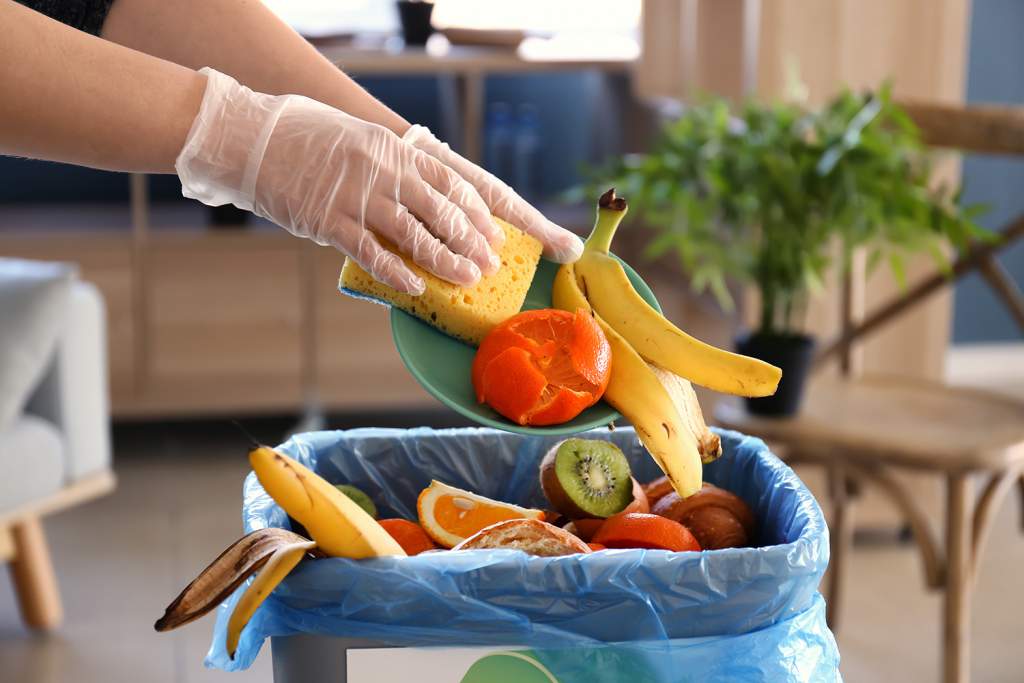In a bid to bolster environmental sustainability and meet ambitious recycling targets, California has implemented a groundbreaking law penalizing residents for failing to recycle food waste. As of January 1, 2024, Californians are now obligated to adhere to organic waste recycling practices, facing fines if they neglect the responsibility.
Legislative Background: A Push for Sustainable Practices
The genesis of this initiative traces back to a state Senate measure approved during the 2021–22 parliamentary session. This measure mandated all local governments to provide organic waste collection services to citizens, setting the stage for a comprehensive approach to waste management.
The primary impetus behind the legislation is California’s commitment to recycling 75% of organic waste by the year 2025. In a bid to achieve this ambitious target, the state introduced measures compelling residents to actively participate in the recycling process.
Defining Organic Waste: More Than Just Food Scraps
The legislation defines “organic waste” as a spectrum encompassing food, green material, landscape and pruning waste. It extends beyond kitchen leftovers to include manure, biosolids, sludges, organic textiles, carpets, lumber, wood, paper products, and printing and writing paper. This broad definition underlines the comprehensive nature of the recycling mandate.

Read more:
- Record Rainfall and Dangerous Winds: Millions in California at Risk
- Los Angeles Smog Worsens, EPA Considers Rejecting Pollution Control Plan
- Trans Drivers Unable to Change Gender on Licenses in Florida
- Northern Lights Treat for New Mexico Residents!
Implementation: Fines for Non-Compliance from 2024 Onwards
To ensure compliance, the legislation also mandates local governments to impose fines on individuals failing to recycle organic trash, starting from January 1, 2024. The fines aim to create a tangible incentive for residents to adopt responsible waste disposal practices and contribute to the state’s recycling goals.
Guidelines and Local Initiatives: Varied Approaches Across Cities
The California Department of Resources Recycling and Recovery (CalRecycle) urges residents to follow their local government’s policies for food waste disposal. Many jurisdictions offer organic waste bins for citizens to segregate their trash conveniently, while some permit transporting food waste to composting sites.
Cities like Rancho Cordova take a three-step approach for non-compliance, offering education, notices of violation, and a 30-day window for residents to rectify their behavior. In contrast, others, such as Sacramento, have adopted a more lenient stance, dismissing citations and emphasizing public education.
Sacramento’s Progressive Recycling Program
Sacramento initiated its recycling program in July 2022, providing residents with free organic waste bins for kitchen use. Notably, the city installed cameras on its garbage pickup vehicles in September, resulting in a 10% reduction in landfill waste and a commendable 14% increase in organic recycling, according to KRCA News.
Stockton’s Emphasis on Education Over Fines
Stockton officials have chosen to prioritize educating the public over punitive measures. While fines won’t be levied for improper disposal by individuals, pollution and overfill fees will apply to businesses and multi-family homes when warranted. This strategy underscores a commitment to fostering awareness and understanding among the public.
Roseville’s Unique Approach to Recycling
In Roseville, residents adopt a distinctive method as the city manages recyclables and trash separately. Here, all garbage is placed in a single container, and the city takes charge of sorting materials at its end. This innovative approach streamlines the process for residents, ensuring effective waste management without burdening them with extensive sorting responsibilities.
Conclusion: A Collective Effort for a Sustainable Future
California’s stringent measures regarding food waste recycling reflect a broader global push for sustainable practices and environmental responsibility. The fines imposed on non-compliance aim not only to enforce regulations but also to instill a sense of responsibility among citizens, fostering a collective effort toward a more sustainable and eco-friendly future.
As Californians navigate these new regulations, the hope is that the fines act as a catalyst for increased awareness and engagement in environmentally friendly practices, contributing to the state’s commendable goals in waste reduction and recycling. The success of these initiatives depends on the cooperation and commitment of each resident, echoing the broader sentiment that small actions can collectively make a significant impact on the planet.

